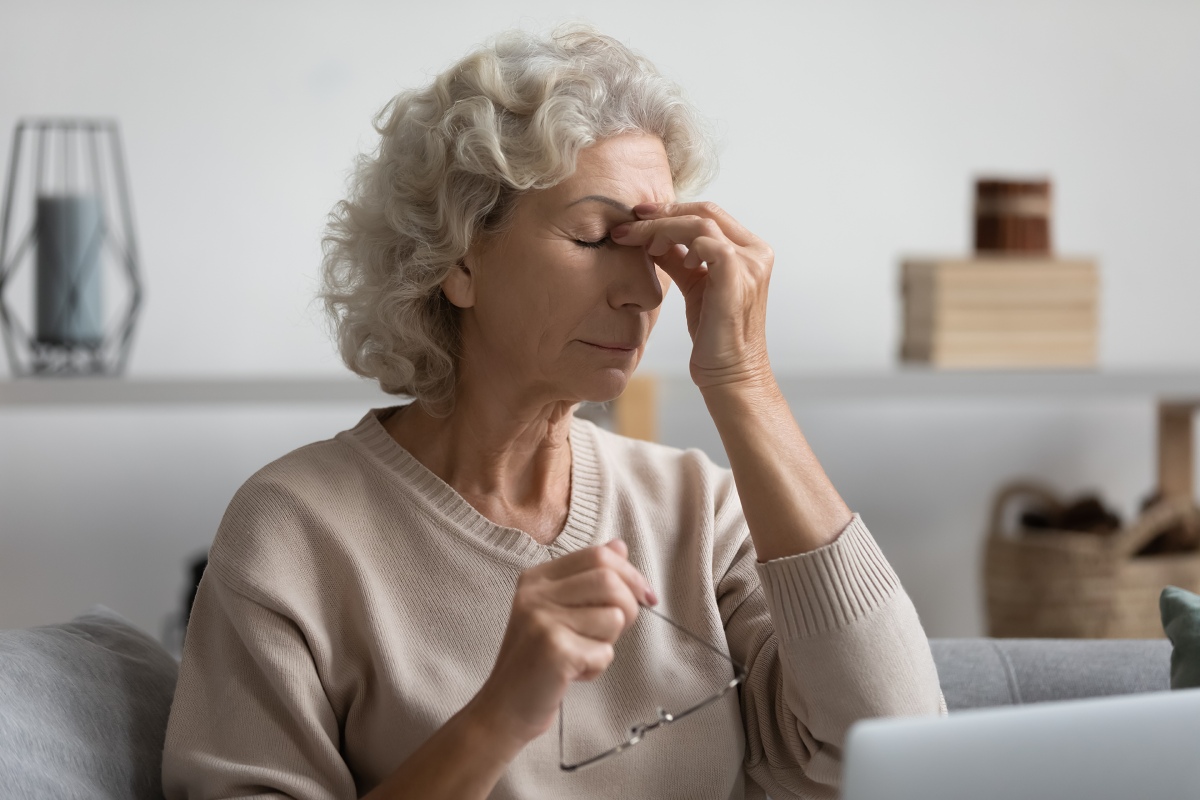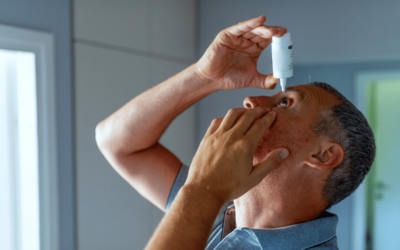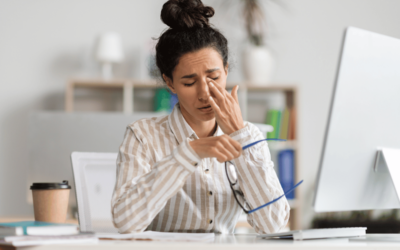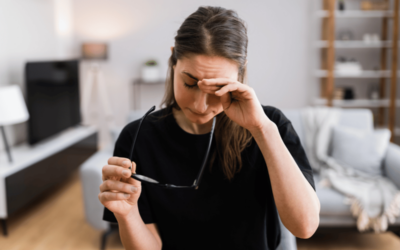Menopause is a natural process that women go through as they age. Along with the many symptoms that often come with it, such as hot flashes and night sweats, menopause can also have an impact on eye health, as many women experience dry eye disease due to hormonal fluctuations during menopause. In this blog post, we’ll take a closer look at dry eye disease and its connection to menopause.
Understanding dry eye disease
Dry eye disease is a common condition that occurs when your eyes don’t produce enough tears or when the tears evaporate too quickly. Symptoms of dry eye disease can include:
- Burning or stinging sensation in the eyes
- Itchy eyes
- Redness
- Blurry vision
- Sensitivity to light
- Difficulty wearing contact lenses
- Recurring irritation that causes teary or watery eyes
- Stringy mucus surrounding your eyes
- Feeling like something scratchy is stuck in your eye
Dry eye disease can be caused by hormonal changes, aging, certain medications, medical conditions such as arthritis, and environmental factors such as low humidity.
The link between menopause and dry eye disease
During menopause, women experience a decline in estrogen levels. Estrogen plays an essential role in maintaining the health of the tear film, which is a thin layer of moisture that covers the surface of your eyes. As estrogen levels decrease, the tear film can become compromised, leading to dry eye symptoms. Research shows that women over the age of 50 are more likely to develop dry eye disease than men of the same age, and a significant number of women experience dry eye symptoms during menopause.
Prevention is key
While menopause is an unavoidable part of the aging process, there are steps you can take to prevent dry eye disease, such as:
- Taking regular breaks when working on a computer or reading.
- Using a humidifier to add moisture to the air in your home or workplace.
- Wearing sunglasses or a hat to protect your eyes from the sun’s harmful UV rays.
- Staying hydrated by drinking plenty of water.
Managing dry eye disease during menopause
If you are experiencing dry eye symptoms during menopause, there are things you can do to manage the condition. Using artificial tears can help to lubricate your eyes and provide relief from symptoms. Your eye doctor may also recommend warm compresses or eyelid massage to stimulate tear production and improve the quality of your tears. Taking steps to reduce your exposure to environmental irritants, such as smoke and wind, can also help to manage dry eye symptoms.
At Louisiana Eye Care, we now offer OptiLight IPL (intense pulsed light) therapy—the first and only FDA-approved IPL treatment for dry eye caused by meibomian gland dysfunction.
If you suffer from dry eye caused by meibomian gland dysfunction (MGD), OptiLight could be the solution you’ve been looking for. MGD occurs when the meibomian glands in your eyelids that produce oil become blocked or don’t work properly. OptiLight is a non-invasive and painless treatment that uses light therapy to stimulate these glands to produce more oil, which can help to relieve dryness and improve your eye health.
Menopause can have a significant impact on your body, including your eyes. Understanding the relationship between menopause and dry eye disease can help you take proactive steps to protect your eye health. If you’re experiencing symptoms of dry eye disease, don’t hesitate to seek treatment from our specialists in Denham Springs. We can help you manage the condition and enjoy optimal eye health for years to come.



